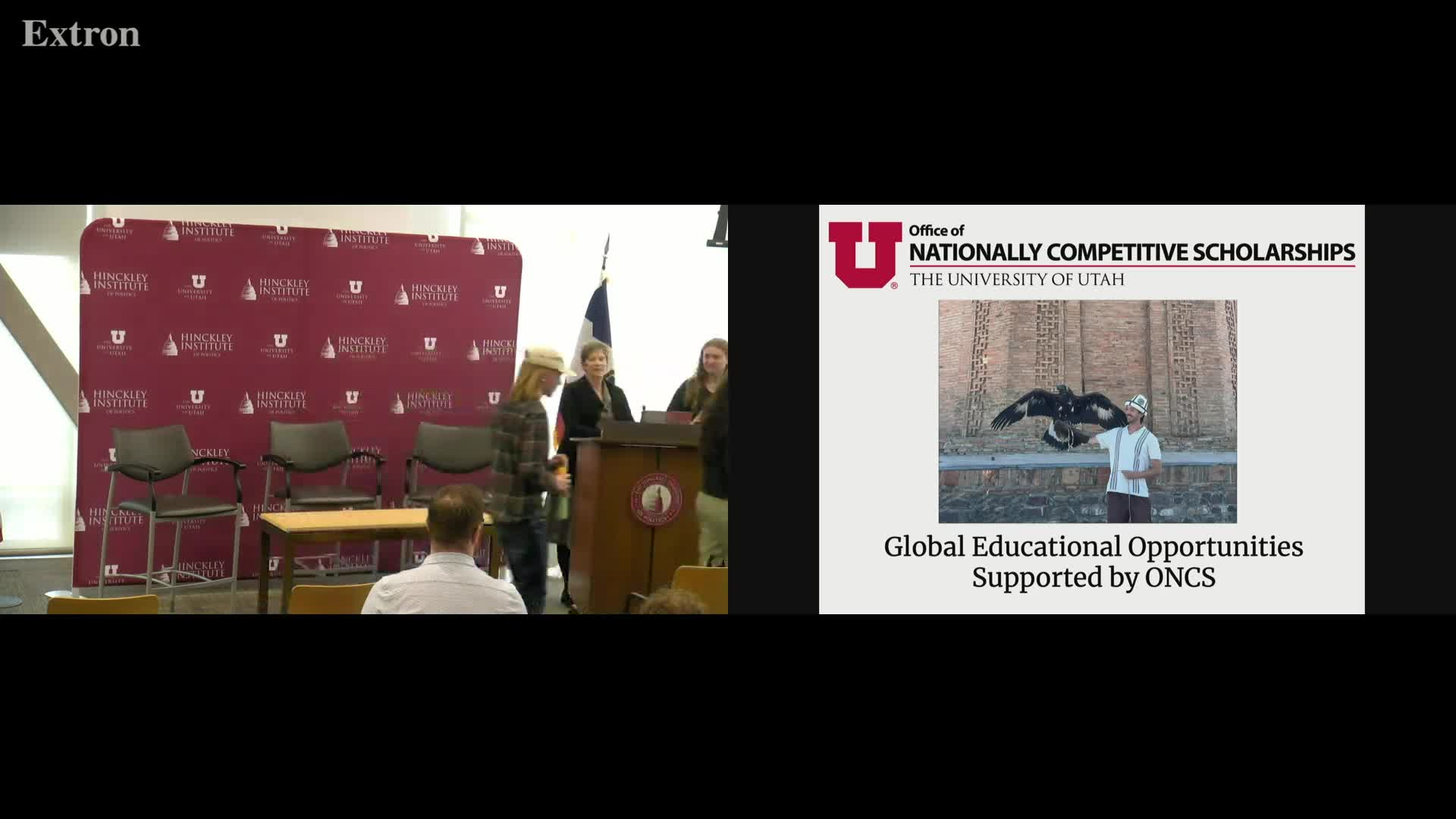University of Utah advisers outline Fulbright, Rhodes, Gilman and other scholarship pathways
Get AI-powered insights, summaries, and transcripts
Subscribe
Summary
The Office of Nationally Competitive Scholarships presented opportunities and services for students seeking Fulbright, Rhodes, Marshall, Churchill, Schwarzman, Yenching, Boren, Critical Language, Luce and Gilman awards, describing eligibility, endorsement processes and application support.
Allison Chimko and Susan Anderson of the University of Utah’s Office of Nationally Competitive Scholarships (ONCS) gave a concise overview of externally funded scholarship programs and the advising services the office provides.
Chimko, a former Fulbright recipient, and Anderson, a program manager in ONCS, said nationally competitive scholarships can cover tuition, intensive language training, living stipends, research or professional experiences, travel and some visa or insurance costs depending on the award. "These are highly prestigious scholarships funded and managed by organizations external to the University of Utah," Anderson said, citing examples such as the Fulbright U.S. Student Program, Gates Cambridge, Rhodes, Marshall and Churchill.
The presenters described program types and audiences: Fulbright supports teaching assistantships or research in more than 140 countries; Churchill and similar awards are targeted at STEM research; Rhodes and Marshall support postgraduate study in the U.K.; Schwarzman and Yenching are leadership‑oriented China programs; Boren and Critical Language Scholarships emphasize priority languages for national security and public service; and the Gilman program supports study‑abroad experiences for Pell Grant recipients.
ONCS staff explained that eligibility and deadlines vary by award. Some programs require university endorsement and an internal vetting process, including faculty interviews for finalists. ONCS offers application review, mock interviews, guidance on letters of recommendation and endorsement coordination. "The process of applying is valuable on its own — it helps you clarify goals and prepare for graduate school or jobs," Chimko said.
The presenters also recommended that students visit the ONCS office in the Marriott Honors Community (MHC 1204) for individualized advising and noted an annual spring celebration that recognizes applicants to nationally competitive programs. They recommended the Gilman scholarship for students with financial need and clarified that the Luce Scholars program has shifted toward professional placements rather than the earlier, broader Asia‑centered funding model.
Students were given handouts and contact information and invited to schedule appointments for help identifying suitable scholarships and preparing competitive applications.
